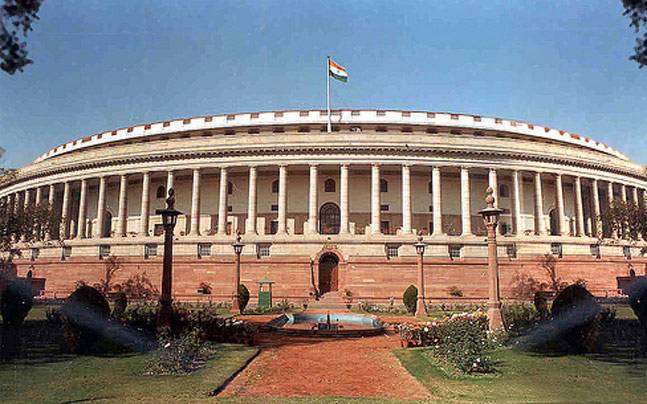Bills passed, but Parliament fails to send out a message of unity in times of external, internal peril.
The Monsoon Session of Parliament, held under extraordinary circumstances, was exemplary. It goes to the credit of Vice President Venkaiah Naidu and Lok Sabha Speaker Om Birla that both chambers of Parliament were commandeered to hold the session, ensuring social distancing and observance of Covid protocol. The spurt in the pandemic, which affected MPs and caused the death of a Minister, necessitated curtailing the session to just ten days. Sittings took place even over the intervening weekend. Lok Sabha sat till midnight to clear legislation. Rajya Sabha saw unprecedented bedlam.
In their respective valedictory speeches, the presiding officers of the two Houses reported, respectively, that Lok Sabha productivity has been 167% and Rajya Sabha 100.47%. The session saw the passage of 25 Bills. Written replies to 2,300 questions were provided in Lok Sabha and 1,567 in Rajya Sabha. The traditional Question Hour, in which oral replies are given, was skipped due to exigency of Covid protocol as the presence of a large number of officials in the galleries was not feasible. However, special mentions and “Zero Hour” references to matters of public importance gave opportunity to 230 Lok Sabha and 198 Rajya Sabha members to take the floor.
All legislation was passed by voice vote. No division took place either or the main Bill or on the amendments moved—and that makes this Monsoon Session an exception. The brouhaha which affected the Session stemmed from the Opposition’s feeling that discussion and debate was being curtailed. The suspension of eight Rajya Sabha MPs due to their behaviour on 20 September, which triggered Opposition boycott of proceedings in both Houses in the penultimate period of the Session, is attributed to this “curtailment of discussion”.
The time for discussion was limited. Metamorphosis of Ordinances, which had been promulgated in the past few months, into legislation was top on priority. Changes in the farm sector and in labour laws were on cards. Opposition to the Ordinances had been voiced by many Opposition parties. Congress had set up a panel to draft its strategy for this opposition. In the Lok Sabha the intervention by Congress MPs clearly indicated that a well chalked out strategy was being cascaded. After a long time such coordination was visible. The government had the numbers in both Houses. In Lok Sabha the passage of the farm bills was stormy but smooth. In Rajya Sabha, which was considering the Bills after they had been passed by Lok Sabha, the storm turned to bedlam.
Some Opposition members insisted on division of votes on amendments moved. Deputy Chairman, Harivansh Narain Singh, whose unanimous election on the first day of the Session had seen encomiums being showered on him from all sides of the House, was surrounded by slogan shouting MPs, who defied social distancing norms in full view of TV cameras (the Session is telecast live). Members encountered House Marshalls, who tried to protect the chair. According to clips available from the cell phones of some Members who recorded the melee, the microphone was attempted to be broken; rule book torn; and the podium was infiltrated upon.
Describing the behaviour of his opponents in 1920, the leader of the Russian Revolution, Vladimir Illych Lenin, had coined the term “infantile disorder”. Rajya Sabha, which is ineptly referred to as “House of Elders” saw unprecedented disruption caused by infantile disorder. According to the chairman of the House, Vice President Naidu, Deputy Chairman Harivansh had announced 13 times that he will call for a division, but for that the House had to be in order, that is, members seated in their assigned seats. The situation in the House at that point merited to be described as “grossly disorderly”—the reason cited as per the Rule Book to suspend eight members the next day.
This was Rajya Sabha’s 252nd session. The 100th Session of this august House was held in 1977, when Rajya Sabha also celebrated its Silver Jubilee. On 22 June 1977, the House feted Bhupesh Gupta,who had been member from the very first day in 1952. Leader of the House, L.K. Advani and Leader of Opposition, Kamlapati Tripathi led the House in praising the Communist MP from West Bengal. It’s perhaps an irony that on 21 September 2020 when members were expelled due to “gross disorder” it included members from West Bengal and Communist MPs. West Bengal is also known for its “bhadralok” (gentlemanly) culture. The behaviour of its MPs in the end of this session was a far cry from that image.
As the successfully conducted session ended in disharmony Parliament of India did not pass a resolution to reflect the unity of the people of this country in the face of the twin external and internal threats—China and Covid. The word Parliament evolved in the 12th and 13th centuries from French parlement, derived from parler (to speak). Discussion and debate can certainly be agenda of Parliament. But disruption? Demonstrations in the well of the House, unfortunately, often deny democratic contestation of ideas—the leitmotif of Parliamentary democracy.

